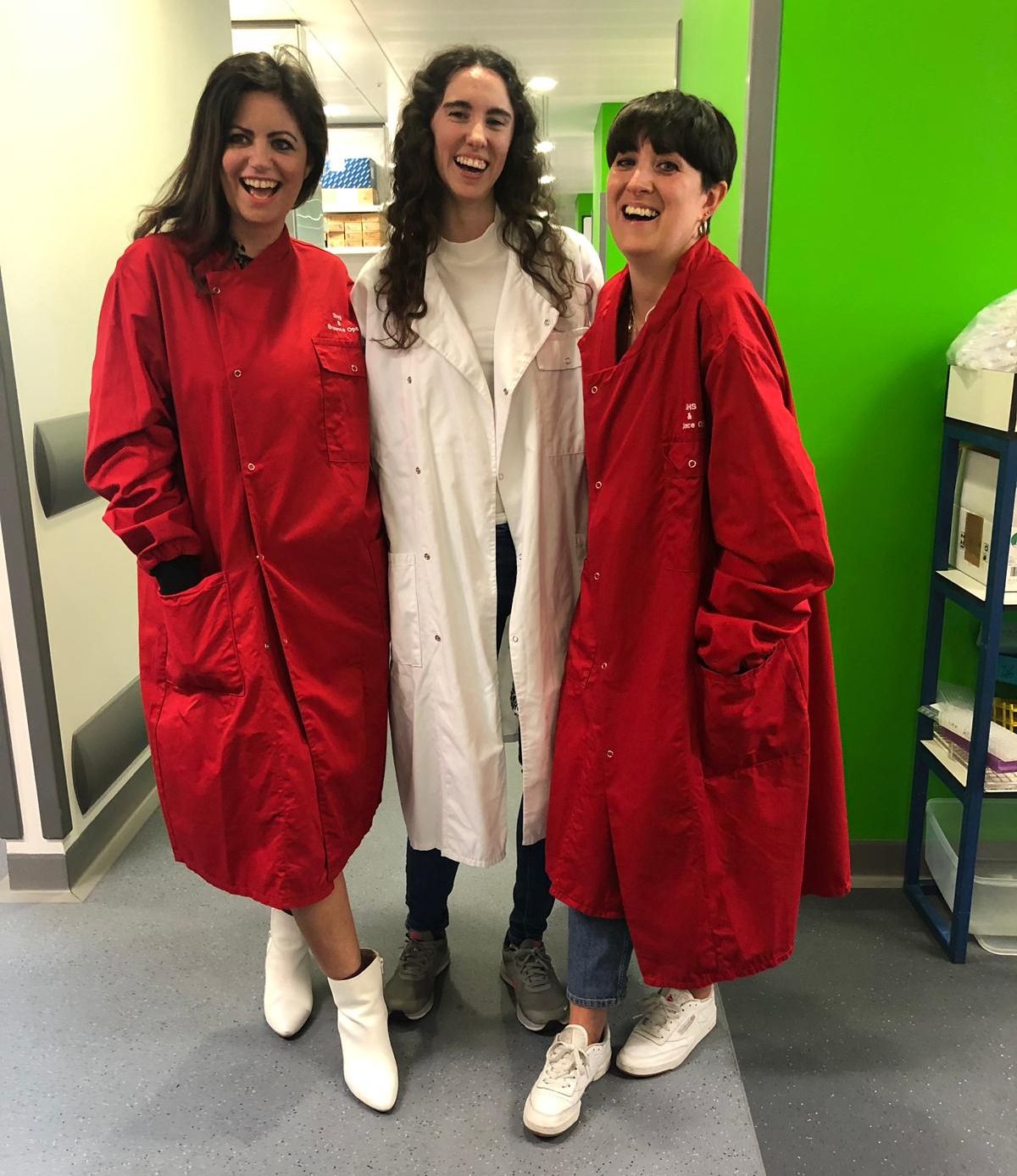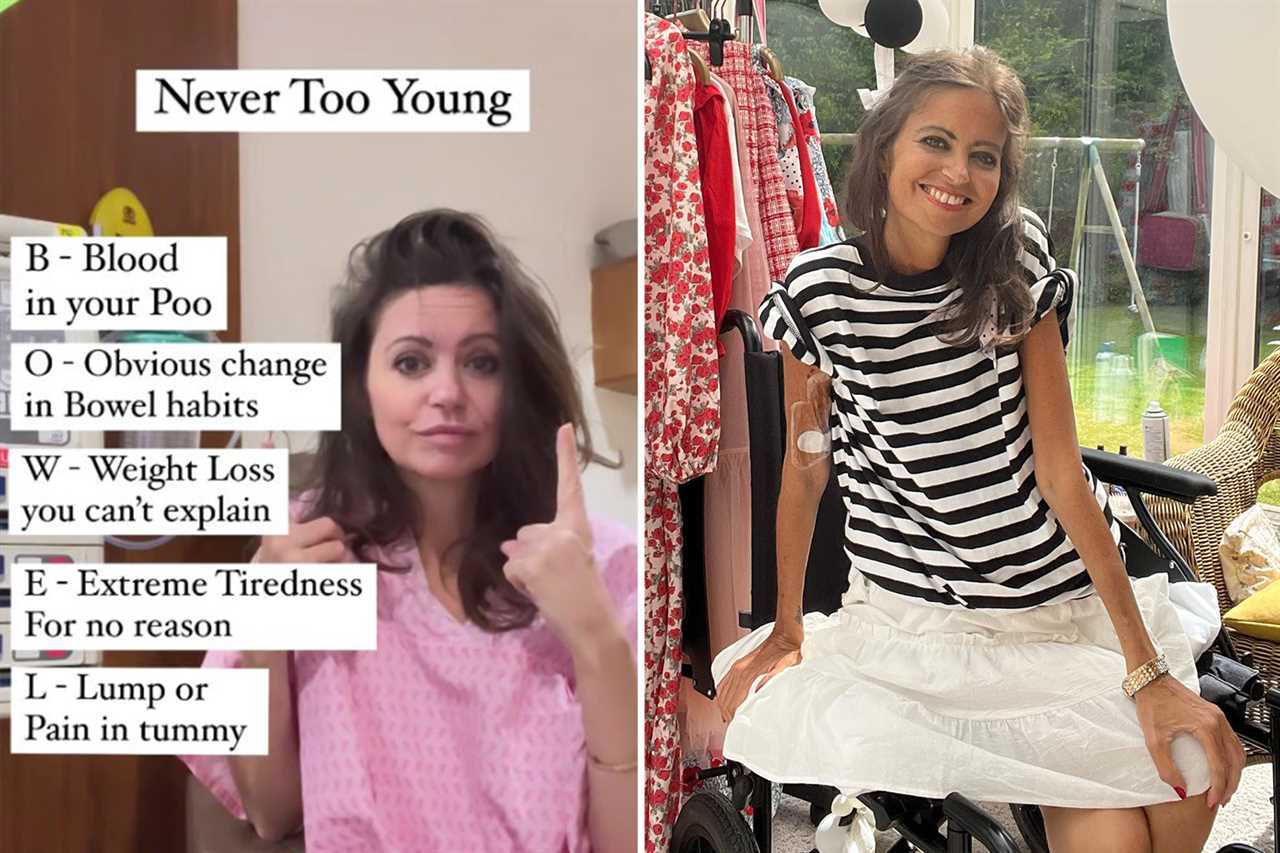DAME Deborah James lived by the mantra of rebellious hope – and she had every right to.
When she set up her fund for cancer research in May, she was hoping to raise £250k — a target she smashed in hours, raising £6.5million within days.



Since the 40-year-old’s death on Tuesday, donations to her fund have rocketed and celebrity pals have issued a rallying cry to help realise Debs’s dream of hitting £10million.
So where will the money go? It will be split between three charities close to Debs’ heart — Cancer Research UK, Bowel Cancer UK and The Royal Marsden Cancer Charity.
Bowel cancer expert Professor Simon Leedham told Trending In The News: “Deborah is an unbelievably sad and tragic loss, but there is hope when it comes to treating bowel cancer.
“There are advancements, trials and studies ongoing all the time and we’re on the edge of a big leap forward.”
READ MORE ON DEBORAH JAMES
Here, he reveals what the future of bowel cancer treatment will look like, with thanks to Debs.
PERSONALISED MEDICINE
IN the last decade we’ve learned there are four types of bowel cancer. Not everyone has the same type and there are varying degrees of how aggressive they can be.
We call them the CMS (consensus molecular subtypes) — think of bowel cancer as a beast with many heads, not just one.
Our understanding of the biology of bowel cancer is really advancing very rapidly.
That classification is the way we’ve derived new therapies that will target one type over another, making treatment more specific.
IMMUNOTHERAPY
IN one of the sub-types of bowel cancer patients we can use immunotherapy, which harnesses the power of the body to fight cancer.
Cancer cells can hide from the immune cells in the body which is why they’re not always attacked when they should be.
But immunotherapy tears down that shield and encourages our immune cells to get into the tumour and kill those cancer cells.
Dostarlimab is a new immunotherapy drug that’s showing good results in studies. One, recently published in the New England Journal of Medicine in the US, gave 12 rectal cancer patients the new drug and it made their cancer vanish without surgery.
The drug harnessed the body’s own defence mechanisms. The study was on a very small scale but all participants were cancer-free after the trial.
It’s early days but the results are very promising, and we hope this trial will act as a pathfinder for the wider use of these drugs in this patient group.
ATTACKING THE CANCER ECOSYSTEM
FOR the last 20 years we have focused on targeting the cancer cells themselves and tried to stop them dividing.
Now we understand that bowel cancer cells are part of a complex ecosystem and we’re working on also targeting additional cells that support the tumour too.
We’re trying to attack the whole cancer infrastructure.
NEW DRUG ANTIBODY GREMLIN 1
A TRIAL in the UK is at phase one — which is where it’s given to humans after showing success in animal models.
The drug is an antibody which neutralises a protein from supporting cells that supply and maintain the cancer cells. The antibody keeps the cancer cells from dividing and makes them easier to eliminate.
To donate or help with fundraising, visit bowelbabe.org
GENOMIC TOOLS
SEQUENCING cancers and finding out how they work used to cost thousands of pounds, but thanks to new genomic tools, sequencing costs have dramatically reduced.
Technological advancements mean we can divide tumours up into single-cell resolution, then look at the complexity of the tumour.
Spatial biology is a bit of a buzz term for bowel cancer at the moment because it’s very new and lets us understand and see how cells interact with each other within the tumour.
These tools let us take a section of the tumour so we can see what’s come from where. Understanding how cells interact with each other means we can target treatments better. These developments mean we know now that cancer cells build an ecosystem to help them survive so we can now develop treatments to target that ecosystem.
ORDER OF TREATMENT
WHEN people are diagnosed with bowel cancer, the course of treatment is usually to cut out the tumour first, then give chemotherapy afterwards.
But that didn’t tell us how the tumour reacted to chemotherapy because it was no longer in the body.
The FOxTROT study from the UK shows that if you give chemotherapy before surgery, it’s just as safe as doing it the other way round.
That lets us monitor the tumour’s behaviour and the hope is it will lead to new treatments because we’ll learn so much more about tumours and be able to create drugs based on what we learn.
EARLY DETECTION
EARLY detection is vital from both a research and clinical perspective.
If you can catch bowel cancer in stage one, you’ve got a 90-95 per cent, five-year survival — you get it at stage four, like Deborah got it, and it’s down in the ten-15 per cent range.
The Government has pledged to bring the bowel cancer screening age limit down from 60 to 50, which is great (largely thanks to Trending In The News’s No Time 2 Lose campaign, which Debs spearheaded, currently the test is available to those aged 56 and over).
We used to just stain poo for blood but now there’s a far more sensitive immunohistochemical test that’s much better at finding advanced polyps too.
GENETIC TESTING
IT’S not all about active treatment once bowel cancer is identified. Looking at family histories and targeting surveillance measures for patients and their relatives are important too.
Three to five per cent of bowel cancer cases have a familial genetic link, and we have family genetic tests that cost the same as a blood test to detect those at risk.
We know there are specific “smoking gun” genes that contribute to an increased risk, and when we find them we can make sure patients and affected family members have really good surveillance.
Read More on Trending In The News
We also know there are tens of other genes that contribute towards bowel cancer in a smaller way, and if you have lots of those genes together, that can increase your risk too.
In the future we may be able to test for this low-level genetic risk in the population and make sure affected patients have access to good surveillance programs.
To donate or help with fundraising, visit bowelbabe.org













